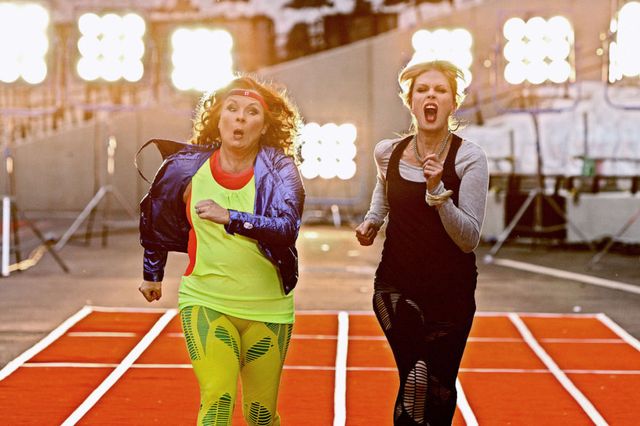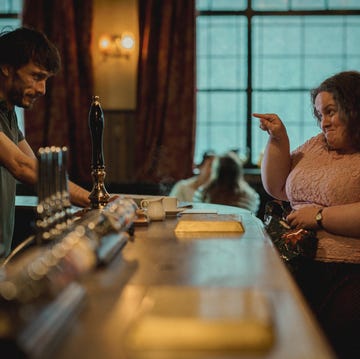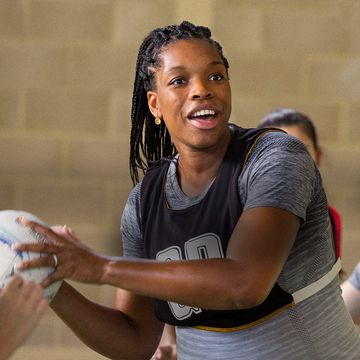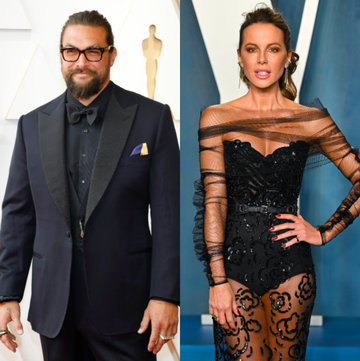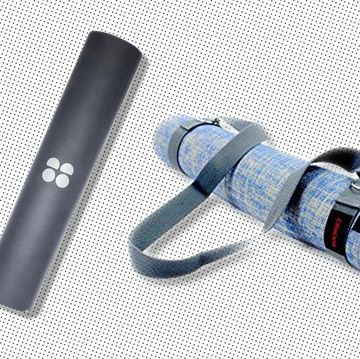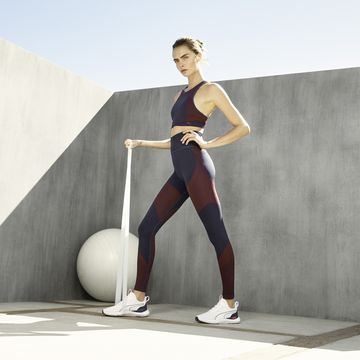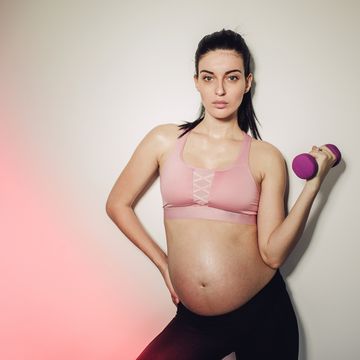Lorraine's Tri-training Diary:
There's only a week to go and if we're not ready now, then Team ELLE Swim & Tonic will never be ready.
Our triathlon journey is nearly complete and for the next seven days we have the pleasure of little to no training.
So what have we learned? The most motivating element of this whole #ELLEfit adventure has been the knowledge that really, truly anything is possible on the exercise front.
The sprint distance triathlon is not an inaccessible, exclusive activity that frowns upon 'recreational athletes'. Believe me: anyone can do it!
We're ordinary women who have devoted some spare time to a consistent run, swim, cycle plan but we're not elite athletes, we're not uber fit, we haven't given up the cake or the booze.
We're not hardcore gym bunnies and we certainly won't finish in the top 10, but we'll be there and we'll have a great day out at Blenheim.
I would highly recommend doing this if you want to shake up your workout routine, if you like exercising outside and if you want to learn to swim properly.
Personal trainer Cathy Brown breaks the Editor-In-Chief with 'moving plank'
On average, we have trained around three times a week with at least one of our sessions being based on weights. I have worked with Cathy 'just dig deeper woman' Brown at the Third Space gym and Swim For Tri at London's Serpentine lake, but each of the team has approached the sport in a different way.
Here's some advice if you fancy doing the Blenheim Palace Triathlon next year (but don't want to win!)
1. You need three months training if you want to do it from scratch. 2. You'll need at least three sessions of training a week, including strength training. 3. You should follow a plan. It's more motivating. 4. You need to swim in open water – pool training won't cut it. 5. You should be mindful of your diet but there is no need for a special diet. You will be quite hungry though! 6. Halfway through your training you will feel like giving up, but the steady improvement you'll see over time will more than make up for the down days. I can run 5km in around 27 minutes now, which is far faster than before I started training and a confidence-boosting side effect! 7. Get some earplugs – swimmer's ear is painful. 8. Train with friends or make new friends with the many triathlon clubs across the UK. Seek out the groups who aren't chasing personal bests and settle in with them. It makes outdoor swimming much more fun.
All we need to do now is remain injury free and relatively sober for a week before we head into that 18°C lake next Saturday at 12 noon. Follow me on Facebook to find out how we're doing and for live updates. Sponsor us here if you fancy a mention in the final blog.
Vic's Tri-training Diary:
My highlights:
Doing a 12km run with my husband and not even feeling out of breath.
Swimming in the Serpentine with Lorraine with lots of uber-fit triathletes and managing further than we've swum in open water before.
My setbacks:
Not being able to cycle as much as I would like.
Also having lots of work-related evening events, which involve wine.
My motivational tips:
Remember it's only one day and you can get round – people of all physical fitness do triathlons and finish the distance. You will feel amazing once you finish.
Annie's Tri-training Diary:
My highlights:
I was in French wine country last weekend teaching on a retreat so I squeezed in a couple of beautiful 10k runs up and down the hills and through country lanes in-between classes.
It makes all the hours of pounding the pavements in busy cities worth it. I also found that I had much more energy to run thanks to the vast amounts of French baked goods I had consumed first.
My setbacks:
I haven't done as much cycle training as I would have liked due to 1) not making time for it and 2) my bike needs repairing. I'm hoping that my thighs will just power through on the day!
My motivational tips:
I find that fitting training in and around your life is key. I often run between my classes or use an hour I have to kill in the day to have a swim.
It's all about planning: having a swimming costume and goggles in my bag at all times helps. This way you just get stuff done with less time for faffing!
Nutrition:
It's all very well and good having a training plan that will prepare you for the physical challenge ahead, but what should you be eating to fuel your training?
Emma Rose, nutritionist for Fresh Fitness Food, shares her advice on matching your nutrition to your training goals…
When training for a triathlon, it's important to fuel your body with high-quality foods.
The main fuel for training is carbohydrates, which is stored in small quantities in the body, the muscles and the liver as glycogen.
This stored glycogen is used as energy for the muscles during training sessions, which is why it is important to have an adequate intake in order to keep it topped up.
Protein requirements increase when you are doing endurance training, and the correct amount of protein will facilitate faster recovery and allow you to train harder on workout days by repairing and growing lean muscle.
For optimal recovery I would recommend between 1.2g-1.7g of protein per kg of body weight. The right amount within this range can be assessed in respect to recovery rate from a training session and can be adjusted if necessary.
What should you eat?
For the composition of a pre-training meal, try to focus on smaller carbohydrate snacks that have a reasonably high glycaemic index score (GI).
A food's GI measure is relative to how quickly it is digested and broken down into glucose, so high GI foods are absorbed faster and less strain is placed on the gut.
Your post-training meal needs to include both protein and carb as both macronutrients are essential for recovery after training.
The carb component replenishes glycogen stores and the protein is vital for the growth and repair of muscle tissue.
When training for a triathlon it is important to fuel your body with the most nutrient-dense foods you can to support all your body systems as heavy training can put stress on the body and impact immunity and recovery. For this reason, it is best to avoid alcohol completely while training.
On the day…
The morning of your race is the time to top up your glycogen stores and hydrate after a night's sleep.
Try to ensure you have meal a good three hours before an event to give your body time to digest.
Slow release (low GI) carbs are the best nourishment for your body a few hours before a race; foods such as wholegrain rice and pasta are good options.
Avoid fatty foods that will lie in your stomach, and anything that you're not used to. This is important to avoid gastrointestinal stress and discomfort.
During the race you will need to top up your glycogen stores. A guideline is 30g-60g per hour; that's roughly a gel plus a sports drink (containing carbs) every hour. In addition, the sports drink will help to replenish electrolytes.
Your post-race nutrition should include high GI carbs and protein-rich foods to boost your energy, rebuild glycogen stores and repair damaged muscle tissue. Bananas are a good post-race snack as they provide a good supply of carbohydrate and potassium to prevent muscle cramp.
Team Swim & Tonic will be taking part in the Blenheim Triathlon in aid of Bloodwise. Sponsor them here.
Images: Instagram/ Giphy
